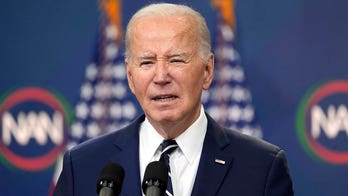
President Obama didn't waste any time freezing all of the pending regulations of the Bush administration.
Almost immediately after Obama took the oath of office Tuesday, White House chief of staff Rahm Emanuel sent a memorandum to all agencies and departments, directing them to stop all pending regulations until a legal and policy review can be conducted by the new administration.
But Obama's inauguration came too late to stop some of Bush's most controversial regulations from being finalized.
"They were very successful at getting these controversial rules finalized before Jan. 20," said Rick Melberth, director of regulatory policy for OMB Watch. "This Emanuel memo doesn't deal with any of those."
It's unclear how many rules and regulations the Emanuel memo applies to, but it could be hundreds, Melberth said.
The Bush administration worked diligently to get its changes in place before Obama took over, moving into overdrive in the last year on a host of new regulatory proposals. In some instances, Bush advisers put the finishing touches on proposals in time to have them passed one day before Obama's inauguration -- federal law requires a 60-day waiting period before any major changes become law.
Those rules included a "right of conscience" law that allows medical providers to refuse to offer any practice they find morally objectionable, including abortion and other reproductive-health procedures.
Another regulation overturned a 25-year-old federal rule that severely restricted loaded firearms in national parks.
Bush also revised endangered species regulations to reduce the input of federal scientists and to block the law from being used to fight global warming.
Federal regulatory agencies like the FDA and EPA create rules and regulations necessary to institute and enforce major legislative acts such as the Food Drug and Cosmetic Act, Clean Air Act or Occupational Health and Safety Act.
Obama has said he would work to reverse the rule changes. But because these rules took effect before he was sworn in, he cannot simply kill them with the stroke of a pen. Presidents have the power only to revise regulations without the approval of Congress before they are passed into legislation.
Obama will either have to restart the lengthy rulemaking process, or rely on Congress to reverse the changes of Bush's finalized regulations. A spokesman for the White House could not be reached Wednesday.
Lawmakers could introduce new legislation or use the Congressional Review Act, a legislative tool passed by the Republican-controlled Congress in 1996, to bring new federal regulations under scrutiny. Bush used that law in 2001 to kill a Clinton-era rule designed to prevent repetitive motion injuries in the workplace.
The most politically expedient option for Obama is to have Congress vote on new legislative proposals, Melberth said, describing the CRA as a "nuclear option" because it prevents lawmakers from delaying or killing proposals.
The CRA "really creates a partisan process, and I think legislation by Congress that would overturn this rule is politically more palatable to Congress," he said. "And I think that's why they would more likely turn to that."
Bush isn't the only president to push major rules, known as "midnight regulations," before his successor's inauguration. Other recent former presidents who used the rule-making tool included Bill Clinton and George H.W. Bush.
Eight years ago, Bush sought to reverse some late-term actions of Clinton, who in his final 20 days in office issued 12 executive orders, including directives on migratory birds and the importation of diamonds from Sierra Leone.
Bush also had his chief of staff, Andrew Card, issue an order blocking Clinton regulations that hadn't taken effect. According to a 2002 General Accounting Office report, 90 final rules had their effective dates delayed.
When asked why presidents issue midnight regulations, presidential historian Douglas Weade told FOXNews.com, "Because they get away with it. And it goes under the radar screen. It's overwhelmed by news of the incoming president. Presidents are always good at timing."
Weade said presidents like to make risky, partisan decisions on weekends when there is less news and fewer reporters covering the news.
"This is the ultimate weekend," he said.
The Associated Press contributed to this report




